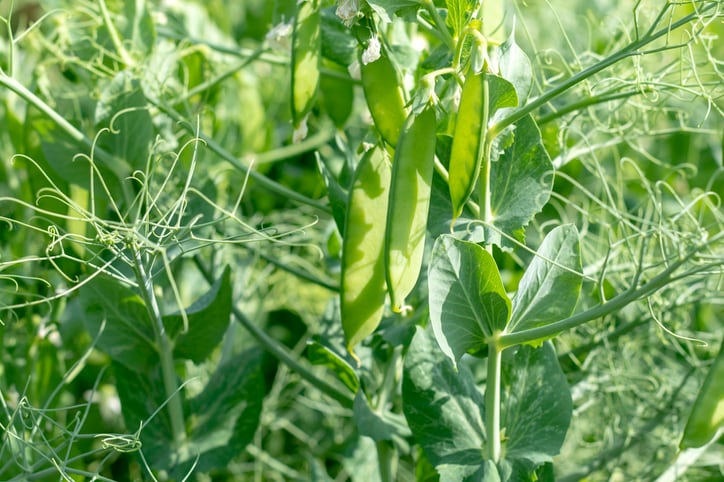As a ‘complete’ protein, pea is often used in plant-based meat and dairy food and beverage formulation. And unlike soya, it is not a crop associated with deforestation in South America. But pea protein does not taste neutral, with off-flavours often described as ‘bitter’ or ‘earthy’ and other flavours therefore tend to be needed to mask the aftertaste.
Now, the ‘Pea Protein’ project is being spearheaded by grass and forage seed specialists and breeders, Germinal. It will collaborate with the John Innes Centre, The Institute of Biological, Environmental and Rural Sciences at Aberystwyth University and trade body the Processors and Growers Research Organisation.
The programme is funded in part by Defra via Innovate UK, part of UK Research and Innovation (UKRI), as part of the Farming Innovation Pathway.
According to the project, there is an urgent need to replace soya with UK protein crops; meeting market demand for taste and functionality; and growing a soya protein alternative sustainably.
The UK has an ‘unsustainable soya habit, one we must break’, it announced. The country imported three million tonnes for use in human and animal feeds last year. Soya is also a crop associated with deforestation in South America contributing to the acceleration of climate change.
However, currently, soya forms the basis of most plant-based protein options. The UK, meanwhile, cannot grow soya beans at scale in its climate, so viable alternatives are needed.
Germinal’s ‘climate smart’ and non-GM approach is to produce a reliable UK grown protein source that can replace soya in human foods, and they believe pea protein can be the solution. Peas are suited to the UK climate, are environmentally friendly, boost soil health by fixing free nitrogen from the air and even leave some in the ground for the next crop.
Paul Billings, Managing Director of Germinal UK and Ireland, said: “Finding a sustainable alternative to soya is a priority for the food industry. Protein crops such as peas are ideal for the UK climate but one of our challenges is their flavour profile in human food. Pea flavours are undesirable for consumers in processed food, so the goal is to produce peas that are tasteless but retain nutritional value. The gene for flavourless peas was first identified in the 1990s by scientists at the John Innes Centre in Norwich.
“This exciting breeding programme will use innovative research in pea genetics to develop new varieties without the traditionally associated problems. This funding continues to drive our innovation journey alongside award winning Aber High Sugar grasses that can reduce emissions from ruminant grazing animals and a world first hybrid clover that is resilient and resource efficient.”
Dr Catherine Howarth from IBERS at Aberystwyth University added: “Peas have an excellent nutritional profile and are an important part of sustainable rotations in UK agriculture. They can help reduce our reliance on imported soya, which will support society in meeting the government’s net zero targets. There are a vast array of products that include peas as an ingredient and we are excited to be part of this project.”
As well as delivering environmental sustainability, the project hopes to provide new economic opportunities for farmers to replace soya with a home grown alternative. Robust testing at farm level will ensure only the varieties that meet market demands and the agronomic requirements of UK farmers will be commercially progressed. The project is described as a “positive step forward in the drive to find tailored solutions for the food industry that consider both the climate and consumer”.



